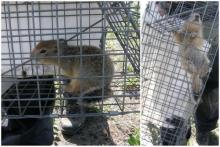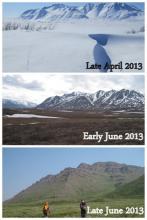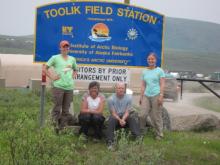What Are They Doing?
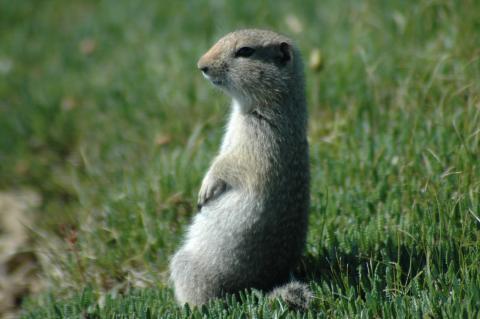
The research team has recently found that the arctic ground squirrel displays daily rhythms of body temperature throughout the arctic summer, in the absence of a light-dark cycle. The current study continues investigate the circadian rhythms in arctic ground squirrels during the continuous daylight present during the active summer season and continuous dark of the 6-8 months of hibernation spent sequestered in a burrow. The team wants to understand why arctic ground squirrels, unlike other arctic vertebrates, appear to maintain 24-hour rhythms during the active season. They hypothesize that the persistence of circadian rhythmicity allows ground squirrels to reduce energy expenditure by anticipating predictable changes in its immediate surroundings. They continue to test their hypothesis by experimentally phase-shifting free-living ground squirrels to be active at 'night' and estimating their subsequent rates of energy expenditure.
Where Are They?
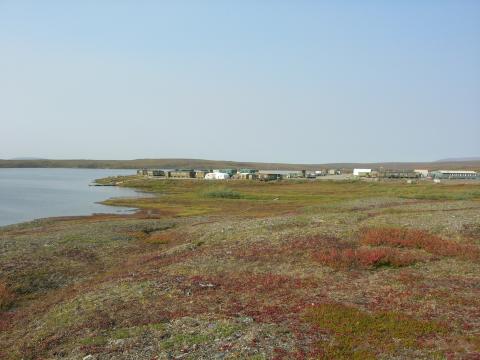
Latest Journals

Cory Williams is currently a research assistant professor at Northern Arizona University. His research examines the physiological and behavioral mechanisms that allow animals to cope with environmental change. Specifically, he is interested in the functional and ecological significance of circadian rhythms in arctic vertebrates and the factors underlying plasticity in the timing of annually recurring life-cycle events. Ultimately, the capacity of polar animals to adjust their timing in response to changing environmental conditions, either through phenotypic plasticity or microevolution, will be an important determinant of their resilience to climate change.

Brian McRae Barnes is a biologist at the University of Alaska Fairbanks with research interests in the behavioral and physiological strategies for overwintering in northern animals, including those of the hibernating arctic ground squirrel and black bear and freeze tolerant or supercooling insects and wood frogs. He is also interested in biological timing, at scales of minute-to-minute decision making, rhythms of daily activity and seasonal reproduction and fattening, and annual timing of hibernation. Dr. Barnes has 27 years of research experience in the Alaskan Arctic and is Science Director of the Toolik Field Station and Director of the Institute of Arctic Biology.

Loren Buck, Professor of Biological Sciences at the University of Alaska Anchorage, is a physiological ecologist interested in adaptations of animals to extreme and variable environments. The Arctic is an extreme environment, characterized by radical seasonal changes in temperature, day length and food availability, all of which have served to shape, through evolutionary change, the extreme physiology of its resident animals such that they not only survive but thrive.
The Arctic is also a changing environment. Over the past 50 years, the Arctic has warmed more rapidly than any other place on the planet and climate models predict further and accelerated warming over the decades to come. Using a combination of laboratory and field approaches, Loren's laboratory is currently investigating mechanisms, function and plasticity of biological rhythms in the arctic ground squirrel.

